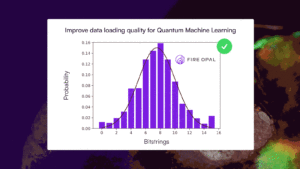Q-CTRL and Hamad Bin Khalifa University’s College of Science and Engineering Partner to Equip the Next Generation Quantum Workforce in Qatar

Insider Brief
- Q-CTRL and Hamad Bin Khalifa University’s College of Science and Engineering will work to build the next generation quantum workforce in Qatar.
- This announcement coincides with Q-CTRL’s CEO, Professor Michael J Biercuk, speaking at the Qatar Economic Forum hosted by Bloomberg.
- The university’s Qatar Center for Quantum Computing will make Q-CTRL’s software available to support and enhance education and research.
PRESS RELEASE — Q-CTRL, a global leader in developing useful quantum technologies through quantum control infrastructure software, announced it is partnering with Hamad Bin Khalifa University’s (HBKU) College of Science and Engineering (CSE) to build the next generation quantum workforce in Qatar through world-class quantum education and software.
This announcement coincides with Q-CTRL’s CEO, Professor Michael J Biercuk, speaking at the Qatar Economic Forum hosted by Bloomberg.
Under this international partnership, HBKU CSE’s newly established Qatar Center for Quantum Computing (QC2) will make Q-CTRL’s software available to support and enhance QC2’s educational and research program. This includes Black Opal, the company’s world-leading quantum educational platform and Fire Opal, automated performance-management software to boost the utility of today’s cloud quantum computers for real high-impact applications.
CSE houses QC2 to partner with prominent academic research groups and industry leaders and pioneer quantum research. With its three research groups focusing on quantum communication, quantum computation and quantum sensing, QC2 is envisioned to play a major role in advancing quantum computing research locally, regionally, and internationally.
Quantum technology promises to transform sectors from pharmaceuticals and finance to machine learning and resources, and represents an $850Bn opportunity according to the Boston Consulting Group. Preparing for this future, and the growing demand for quantum talent, requires investment in the skills needed to drive development and adoption of quantum technology.
At QC2, Q-CTRL’s Black Opal will supplement academic curriculum and executive education programming to help build a quantum-ready workforce in Qatar. Fire Opal will be available to help quantum researchers and industry leaders achieve high-value solutions from algorithms run on today’s faulty quantum computers, ensuring they are among the earliest beneficiaries of the emerging quantum sector. The partnership with Q-CTRL will also support internship opportunities and joint collaborative research between academic and industry leaders.
Rollout of these software tools to HBKU will be planned for the latter half of 2024.

“This partnership marks a significant milestone in our efforts to foster academia-industry collaborations that enhance educational programs and expand research capabilities in quantum computing,” said Dr. Saif Al-Kuwari, Director, Qatar Center for Quantum Computing (QC2). “We are committed to working with Q-CTRL to develop future generations of the quantum workforce and equip students with the skills necessary to thrive in this innovative landscape.”
“The team at Q-CTRL is totally committed to realizing the full opportunity for pride and prosperity presented by the quantum technology revolution,” said Prof. Michael J. Biercuk, Founder and CEO of Q-CTRL. “We’re very proud to be partnering with Dr. Al-Kuwari to share our expertise in Qatar and benefit from the talented base of students and academics at QC2. Qatar is a vibrant and innovative nation and it’s exciting to help shape the future of quantum technology in the region with our partners at HBKU.”
